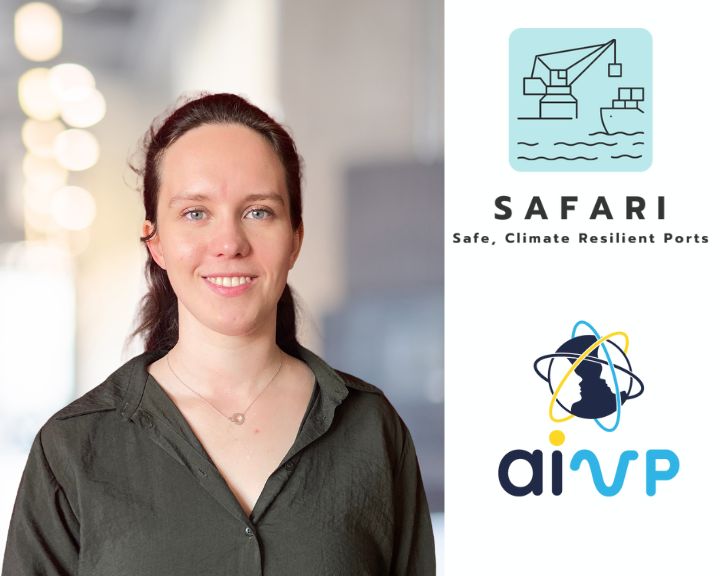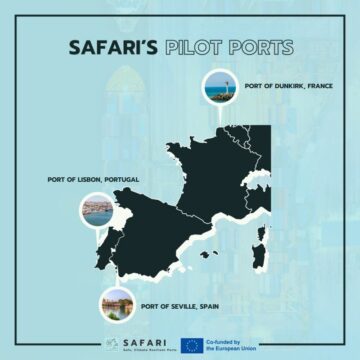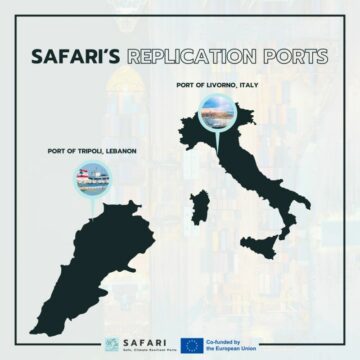What is the European SAFARI project?
The European SAFARI (Safe, Climate Resilient Infrastructure) project aims to ensure the resilience of port infrastructure by maintaining the continuity of maritime trade, safeguarding the flow of goods and services even under adverse circumstances. European ports are exposed to multiple risks and vulnerabilities that can impact their operations, functionality, and efficiency during various climate-induced weather phenomena. The focus of the project is on developing a digital platform for emergency management of infrastructures so that they can maintain 80% port capacity during periods of disruption. Other goals include optimizing the allocation of multi-modal transport assets and management to minimize downtime during extreme weather events; implementing resilience measures; ensuring the safety of personnel, vessels and biodiversity; and building a governance model and guidelines to address climate risks and hazards for port infrastructure.
This project is financed by Horizon 2020, a European Commission program. It runs from May 2024 to October 2027.
Who are our main partners?
SAFARI has a consortium of 26 partners. The University of Lille is the coordinator of the project. The ports of Dunkirk (France), Sevilla (Spain), Lisbon (Portugal) are the main port partners and where the different solutions will be tested. The ports of Livorno (Italy) and Tripoli (Lebanon) are replicator ports, which will be closely following the advancements of the projects and testing out the solutions once finalized. Other partners are diverse: they include research and academic institutes, terminal operators, and organisations focused on ports.
What is AIVP’s role?
The AIVP is involved in three work packages of the project. The SAFARI project is directly in line with Goal 1 – Climate Change Adaptation, Goal 4 – Renewed Governance, and Goal 5 – Investing in Human Capital of the Agenda 2030 by AIVP. The AIVP’s main role in the SAFARI project is the dissemination and exploitation of the solutions. In work package 2, the AIVP will help disseminate the results of the project, for example by including presentations in AIVP’s annual world conference.
A large part of the AIVP’s tasks in these work packages includes using the knowledge we have acquired through our international network in order to give insight into international standards and trends. In work package 5, which is focused on process standardization, the AIVP will be analyzing the pilot ports’ existing strategies in case of extreme weather events and seeing how these fit into the SAFARI plans. In work package 6, the AIVP will follow the pilot projects in the AIVP member ports, notably in the ports of Dunkirk and Sevilla.
What are the expected results?
The overarching aim of the SAFARI project is to develop a digital platform for emergency management of infrastructures so that they can maintain 80% port capacity during periods of disruption. Therefore, the SAFARI project has the following objectives:
– to develop institutional resilience measures to strengthen existing port infrastructure;
– to elaborate and implement a governance model and guidelines in order to ensure the safety of peoples, vessels, and nature while also optimizing multi-modality;
– to launch pilot projects to test various solutions. The aim is that the solutions identified in the project can be replicated in other European ports after the project.








